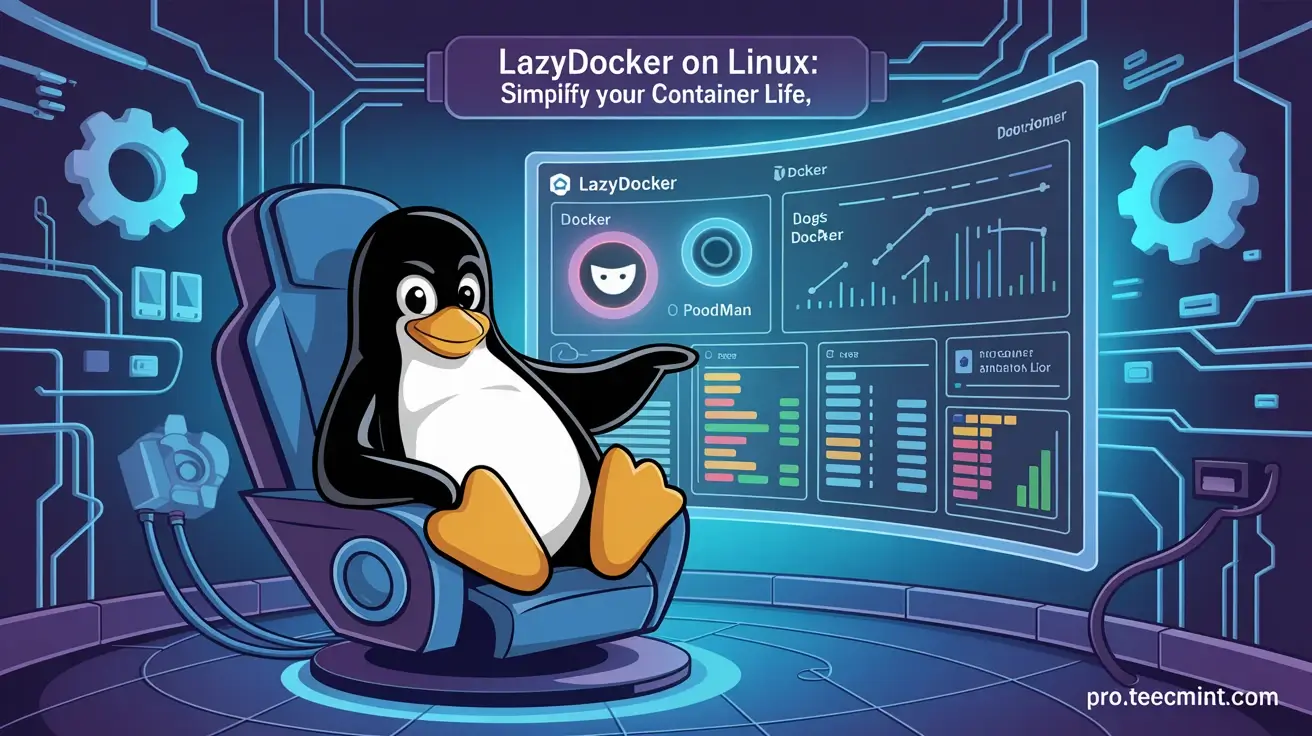Lazydocker: The Easiest Way to Manage Docker & Podman on Linux
In this guide, we’ll walk you through how to install and use Lazydocker on a Linux system to manage both Docker and Podman containers with ease.

Docker is an open-source container management system that has become a must-know tool for developers, DevOps engineers, and anyone working with cloud-native applications.
It allows you to package, run, and manage applications inside lightweight, portable containers. Every DevOps engineer and developer should know how to use Docker and the Docker CLI to manage containers, volumes, networks, and more.
But here’s the catch - while Docker is powerful, it can also be overwhelming at first. Managing containers through the command line isn’t always intuitive, especially if you’re just getting started.
You need to learn and remember various Docker CLI commands to create, monitor, stop, remove, and troubleshoot containers. You’ll also have to deal with logs, images, volumes, and networks - all through text-based inputs.
And Docker isn’t the only tool in the container world. There’s also Podman, a rising alternative that offers similar features with some notable differences under the hood, like being daemonless and rootless by default.
Podman is a great option, but just like Docker, it also comes with its own set of commands and learning curve.
Whether you're using Docker, Podman, or both, managing containers from the CLI can get tedious and error-prone. That’s where having a user-friendly management tool makes a huge difference.
Enter Lazydocker - a simple terminal-based UI that acts as a dashboard for your Docker or Podman environment. It gives you a clean, interactive way to view and manage your containers, images, volumes, and logs without having to memorize all the commands.
It’s lightweight, intuitive, and perfect for both beginners and seasoned users who want a quicker workflow.
In this guide, we’ll walk you through how to install and use Lazydocker on a Linux system to manage both Docker and Podman containers with ease.
What is Lazydocker?
Lazydocker, as the name suggests, is designed for users who prefer not to manage everything using the default Docker or Podman CLI tools.
Lazydocker is a lightweight TUI (Terminal User Interface). Unlike CLI tools that require typed commands, a TUI allows you to navigate using arrow keys or shortcuts. TUI tools also provide structured panels and menus for better visualization and organization of information..
This is why a TUI like Lazydocker can be more user-friendly than a plain CLI. Docker only provides a CLI for management, while Lazydocker offers a visual and interactive way to manage containers, images, volumes, logs, and even system stats - all from one convenient interface.